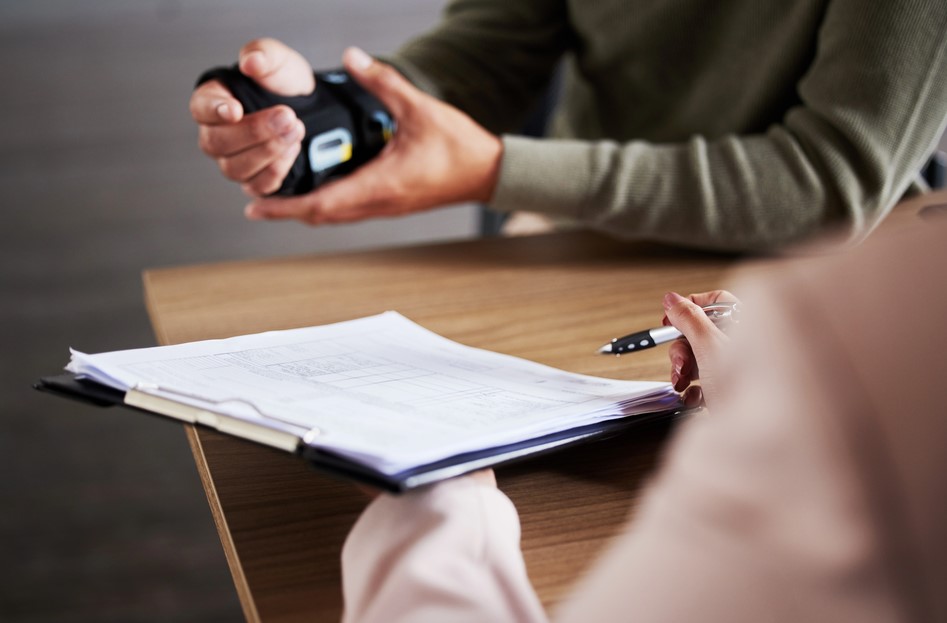
When you are injured in a car accident or other incident, the stress and flurry of emotions you experience can make it difficult to remember what to do. However, doing the right thing can be the difference between a successful lawsuit and an unsuccessful one.
As the principal of Burnett & Williams, a leading Virginia personal injury law firm with offices throughout Virginia, including in Richmond and Northern Virginia, C. James Williams III has helped hundreds of clients navigate the complexities of a personal injury lawsuit or wrongful death claim in the aftermath of a car accident, truck accident, slip and fall, or other incident. He shares the steps he recommends any injury victim take immediately following an incident to help their attorney achieve the best possible result from their personal injury claim.
What to do after a personal injury in an auto accident, truck accident, or other incident
The first and most important step after an injury is to ensure the safety of everyone involved. If an unsafe situation led to the injury, promptly take action to shield others from harm. If your injury has created an unsafe situation, take steps to mitigate the hazard, such as activating your hazard lights or setting flares if it’s dark.
After everyone is safe, it is essential to seek medical attention immediately, even if any injuries seem minor. As Williams points out, some injuries may not be apparent right after the incident.
“Car accidents often result in internal injuries such as concussions or whiplash that may not be immediately apparent, but a doctor can diagnose,” Williams explains. “Furthermore, because your adrenaline is rushing after an accident, this could mask some feelings of pain.”
If safe and possible, document the incident scene right away. Take photos of everything that will be necessary to construct the narrative of what happened, including the accident scene itself, any factors that may have constituted unsafe conditions or negligence, the damage to any property (such as vehicles), and any visible injuries sustained. Immediate documentation can be instrumental in establishing causality and fault.
If there are any witnesses to the incident, it is equally important to collect their contact information, including their names, phone numbers, and addresses, if possible. In a personal injury case, witness statements and testimony can significantly impact the outcome, but locating witnesses after the incident can be challenging without a means to contact or identify them. It surprises people to learn that the investigating police officer doesn’t always get witness contact information.
Once everyone is safe and the incident has been documented, report the incident to the relevant authorities. Motor vehicle collisions should be reported to the local police or highway patrol, while a slip and fall should be reported to the property owner.
“Reporting the incident will get the ball rolling on an official report for what occurred, which can be crucial for legal proceedings,” explains Williams. “Although failing to file a report does not necessarily disqualify a claim, it does make it more challenging to prove negligence, fault, and damages.”
When to contact a personal injury lawyer for a personal injury case
After you have sought medical treatment, the next step is to get a consultation from a personal injury law firm. Although accident victims have a certain period of time during which they are allowed to file a case in civil court, known as the statute of limitations — typically two years in most states, including the Commonwealth of Virginia — it’s better not to wait until the last minute to contact an experienced attorney.
“A personal injury attorney will not only ensure that any legal action is taken before the statute of limitations tolls, but also that you don’t make any mistakes that could jeopardize your case’s outcome,” Williams notes.
One of those mistakes, according to Williams, is failing to preserve any evidence.
“Do not get rid of any evidence before your case has seen its full conclusion,” he clarifies. “If you’re in a car accident, don’t delete any photos until your case is settled or tried in court. If you were the victim of a slip and fall, it’s crucial to retain any receipts, such as food purchases, that prove your presence at the scene of the accident until your case is concluded. If these things are deleted or lost, it can be difficult for you or your attorney to get them back.”
Finally, Williams reminds victims that they should not speak to the other party’s insurance company directly without the presence or instruction of their attorney.
“Your personal injury lawyer should handle all communications with the insurance company,” Williams concludes. “You can confirm minor objective details, such as your name and contact information or the date and time of the accident, but anything beyond that, kindly inform the insurance company that you would prefer to speak to your attorney before saying anything else.”
Hire an attorney today for your personal injury claim
By following these tips, you can be better prepared to receive the best possible outcome for your personal injury case. An accident or other injury is an incredibly stressful time, but if you take a moment to take these steps, you can prevent the aftermath from being just as stressful. If you have been involved in an accident in Virginia, call Burnett & Williams for a free consultation and free case review today.






